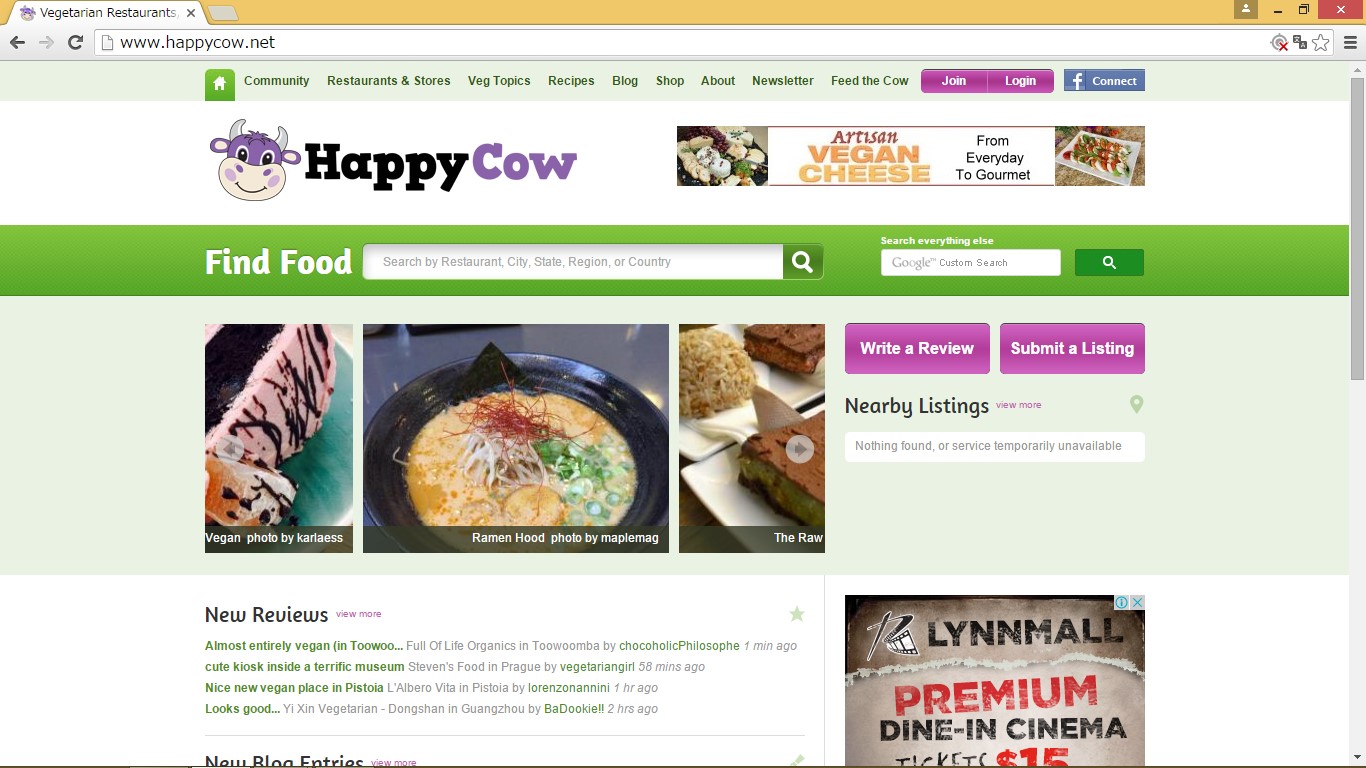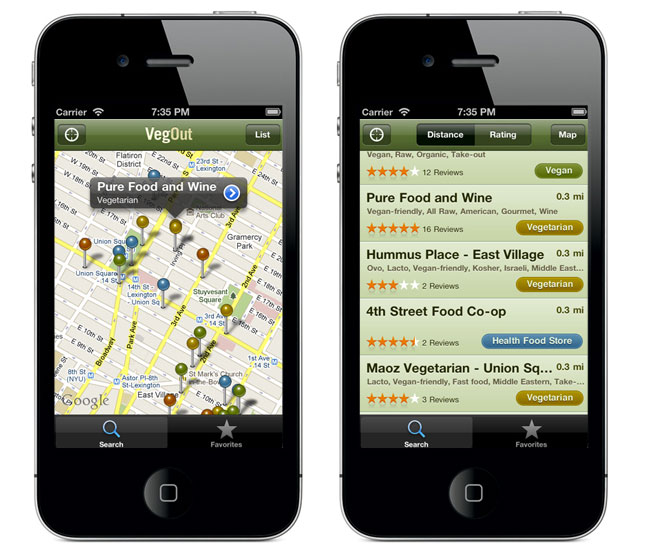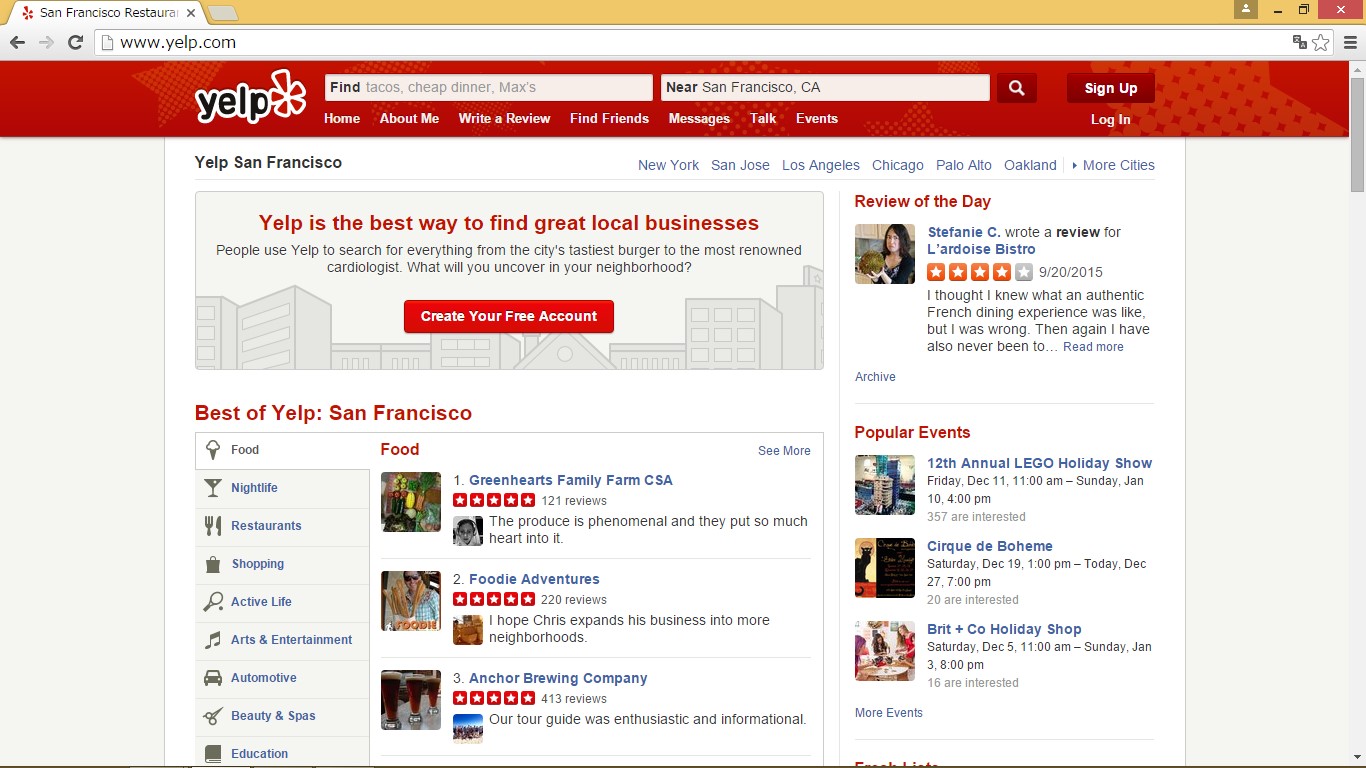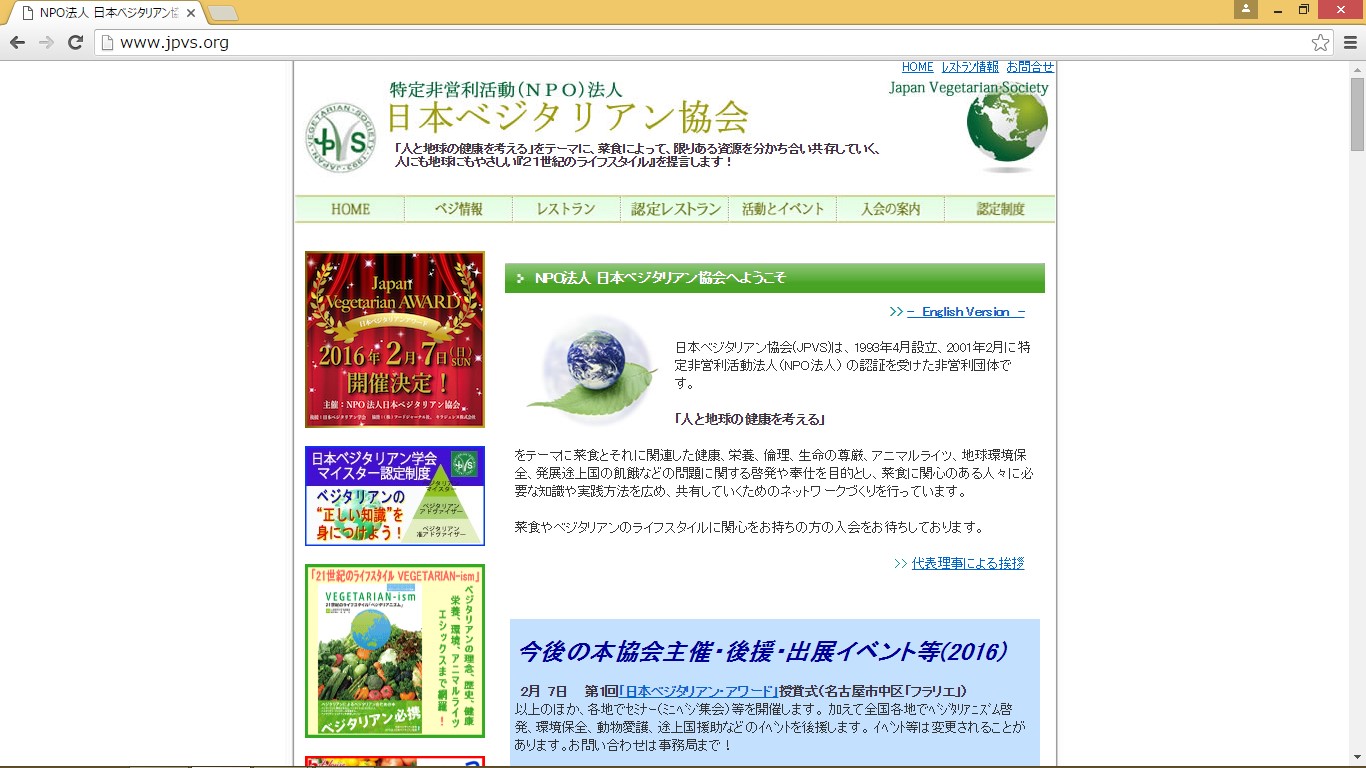
photo by huffingtonpost
One of the enjoyments of travelling overseas is to enjoy the local food culture. It is exciting to try different dishes during your stay. However, it seems to be difficult for vegetarians to find good restaurants which offer food for their dietary requirements. Some people say that it is frustrating to check what the ingredients are on every single visit to different restaurants. It can also be simply difficult to find vegetarian restaurants in Japan. This article will introduce some useful websites and mobile apps to find vegetarian eateries in Japan.
Vegetarianism today
It has been a while since developed countries entered the age of plentiful food. As the environmental concerns gain attentions, more people are becoming vegetarians. However, vegetarians still remain minority in many countries including Japan. There are many different types of vegetarianism: vegan, lacto-vegetarian, lacto-ovo-vegetarian, etc. The reasons behind the choice of becoming a vegetarian also vary. Some are concerned about the environment; while others find meat does not agree with their physical makeup or simply dislike meat and fish. The country with the biggest population of vegetarians is India with 350 million people which make up about 30% of overall population. Other countries known as having many vegetarians include Brazil, the U.S., the U.K., and Germany. In Japan, only about 6 million people, 4.7% of the total population, practice vegetarianism. This is quite a small figure, but the vegetarian population is growing as people have developed more awareness about vegetarianism in recent years. You can find many vegetarian restaurants in big cities such as Tokyo and Osaka. Kyoto, which is the city of Buddhism and also known for its production of quality tofu, has many restaurants with traditional vegetarian cuisine, such as shojin-ryori (vegetarian cuisine originated from Zen temples).
“Happy Cow” – all-round website for vegetarians

“Happy Cow” is a website launched in 1999 by members of staff who are all vegans and vegetarians. It proposes healthy and environmentally friendly lifestyles for everyone in the world. A variety of information is available on this website, such as recipes, blog posts, bulletin boards, and events. This website is recommended not only for when you are on a trip, but also in your own country to look up shops which offer vegetarian ingredients.
The best part of this website is that it enables you to search vegetarian restaurants and natural food shops across the globe. Simply type a keyword (a country or a city) in a search box, saying “Find Food”, and you will see a list of restaurants and shops. You can also find the detailed information like blurb, address, telephone number, URL and user reviews, with a single click on the name of the place. It is useful since the restaurants are categorised in three types: vegan (those who refrain from consuming any animal products), vegetarian (this includes people whose diet include eggs, dairy products and honey), and vegetarian friendly (more than 70% of the menu is suitable for vegetarians).
“VegOut” – iPhone app for vegetarians

“VegOut” is an iPhone app based on the search function of the aforementioned website, “Happy Cow”. You can easily search for restaurants categorized by vegan, vegetarian, and vegetarian friendly. This app also has a map view, and the restaurants of different categories are shown in pins of different colours. It is capable of searching restaurants across the world, so it will be useful in your everyday life as well as during your trip.
“Yelp” – all-round restaurant searching website from the U.S.

“Yelp” is a large-scale search engine launched in 2004 in the U.S. This website was created to connect customers and local businesses, including restaurants, hairdressers, and dentists. It also enables you to search businesses across the globe, and it can be used in multiple languages such as English, French, Spanish and Japanese. Type in some keywords like “vegan” or “vegetarian” and select the area you are in, then you will see a list of businesses. You can also see users review, which is useful in doing a research before your visit. They offer a mobile app version as well.
Website by Japan Vegetarian Society (Japanese Only)

If you read Japanese, then you will find the website by Japanese Vegetarian Society also useful. This organisation was established aimed at raising the awareness within Japan about vegetarianism, health issues, nutrition, and environmentalism. They offer a list of vegetarian restaurants and restaurants with vegetarian menu in each region. They even have a list of restaurants that are specially recognised by the organisation. The website also offers information like online shopping websites for vegetarians and events.
Japan Vegetarian Society (Japanese)
Summary
Before the Meiji restoration, Japan traditionally had a diet centred around vegetables. Japanese people rarely ate animal protein except for fish and seafood. This might lead us to think it should be easy to find restaurants suitable for vegetarians in Japan. However, most Japanese cuisine use fish stock as part of flavouring, which makes it rather difficult. Try to use the websites and mobile apps above to find vegetarian restaurants that serve a variety of cuisine. I hope you will find your favourite restaurant while you are in Japan.
Related Article:
A list of searching tools for halal foods and restaurants in Japan.
